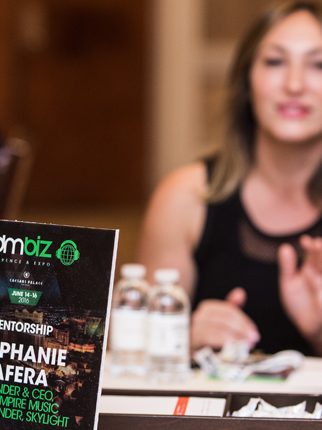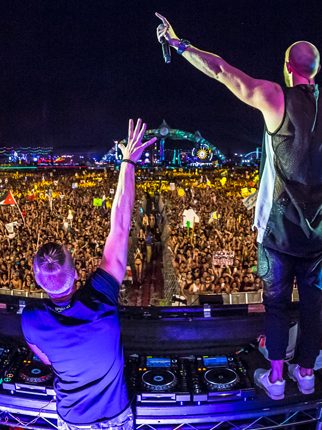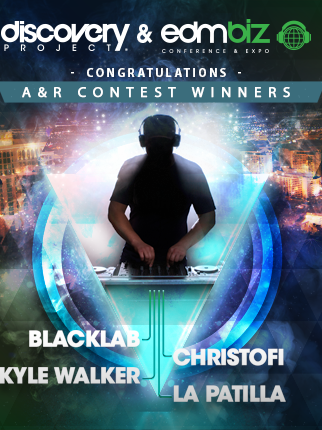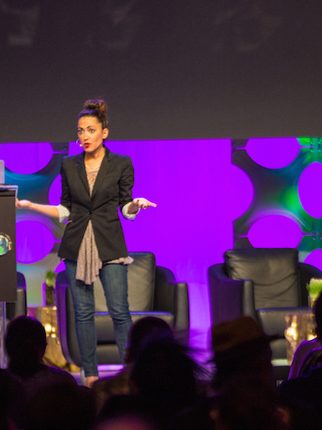EDC TriHackathon Adds an Innovative Twist to the Typical Hackathon
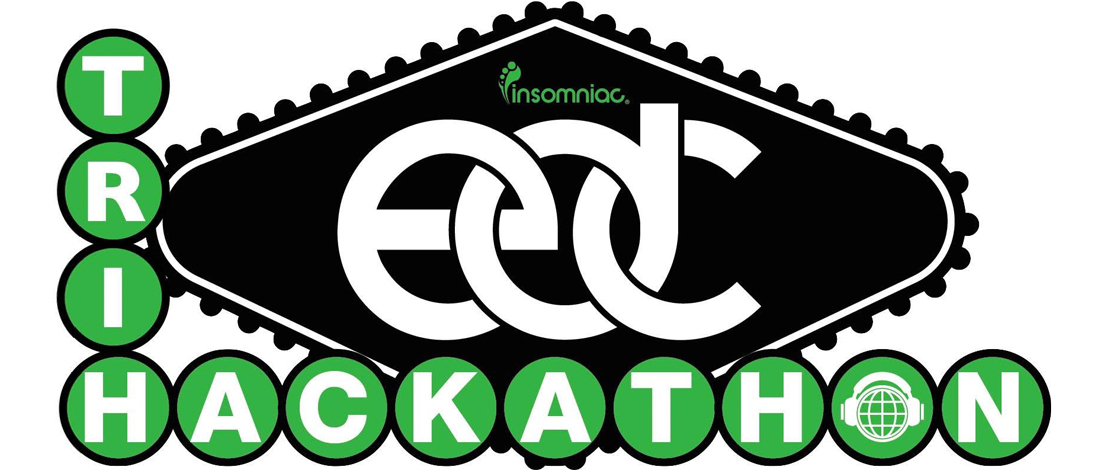
Long ago in a dial-up galaxy far away—1995, to be exact—the film Hackers was released with a soundtrack featuring some of the biggest acts in electronica (as it was called then): Orbital, Underworld, Prodigy and Carl Cox, among others. In 2010, the tech exposé The Social Network was scored by electronic music titan Trent Reznor, who won an Oscar for his work in 2011. These days, if can walk around any startup, you’re likely to hear the familiar “untz untz untz” or “wobble-wobble” of electronic music leaking from programmers’ headphones.
As Tumblr Media Relations Head and former Nielsen Entertainment VP Tatiana Simonian has said, EDM fans are “more likely to be tech-savvy than other groups—I think because they’re making music digitally.” According to this year’s IMS Ibiza report, EDM fans do indeed love their gadgets. DJ product sales surpassed $141 million, and the global electronic music industry is now worth $7 billion.
The EDC TriHackathon, presented by Insomniac and CODEMKRS at this year’s EDMbiz in Las Vegas, taps into that affinity with a couple of innovative twists. For CODEMKRS’ Travis Laurendine, who has organized hackathons for SXSW and Outside Lands, it’s a natural connection. “Electronic dance music and innovation are tied together at the hip. The explosion of the laptop changed music production forever, and that’s where EDM came from.”
Unlike most hackathons that take place in one venue during one period, the EDC TriHackathon unfolds in three phases and “locations”: June 7–14 via a virtual option allowing anyone to participate remotely, June 10–12 in Los Angeles, and June 14–15 at EDC Week in Las Vegas.
“You are encouraged to come and hack a new project from scratch using your favorite APIs alongside our leverage partners, which include Facebook, Uber, Ticketmaster, Aloompa and Consensys (the Blockchain specialists),” states edchackathon.com. “A brand-new API developed internally by EDC itself will also be unveiled at the event, allowing for things like chat bots and livestream hacks.”
Participants can register as a hacker, artist, maker, producer, volunteer or startup, making the TriHackathon a more holistic experience. As Nielsen data has also shown, electronic music lovers are mostly millennials. They are 29 percent Hispanic and “over-index in African-American fans, in Asian fans, and even in Native American fans.” Taking a 360-approach not only echoes EDM’s inclusive vibe, it provides crucial support for the full tech development cycle, support that is often missing at many hackathons.
“Normal hackathons are science fairs,” says Laurendine. “What we’re doing by having Insomniac’s API and having leverage partners like Ticketmaster, Facebook, Uber and Aloompa is, we’re able to give the projects incubation and distribution. That opportunity is worth more than money—it’s the opportunity to go live to 400,000 users right away. This is why we’re more than a ‘science fair.’ This is why we want serious technologists—people who really care to participate.”
Finalists will present their projects for evaluation on June 15 at Demo Day in Las Vegas, hosted by Josh Constine, TechCrunch Editor-at-Large and EDM aficionado. Constine will also act as virtual coach via Facebook Live, mentoring participants on their work.
Taking an idea from project to viable product is a complicated process that involves managing teams and marketing a brand—work that is often beyond most coders’ skill sets. To ensure that developers don’t feel abandoned after the event, the EDC TriHackathon includes an incubation phase.
“After the festival is over, we’re going to continue to incubate them and match them with investors, other team members, and team partners as the first-ever EDM incubator,” Laurendine explains. Details for the incubation phase are still in the works, but like the distribution prize, it reflects Insomniac’s and CODEMKRS’ commitment to the TriHackathon, which is expected to become a regular part of EDMbiz.
Even before the movie Hackers, DJ culture has always been an early adopter of new technology. From turntables and synthesizers to samplers and controllers, the impulse runs deep and has often pushed music and technology forward. There’s no telling what this year’s TriHackathon will add to the list, and that is Laurendine’s goal.
“I’ve done this for other genres and events. It’s like seeing magic being made in front of you—things that could become the next Beatport or the next Ableton. How do we get there? We create an environment that drives this idea,” he says. “Insomniac is doing one of the most progressive things that has ever been done, which is create their own API and allow software developers to create with them, turning themselves into a platform for innovation. No other festival does this. EDC is going into the future with their [developers] as co-creators of their digital future.”

